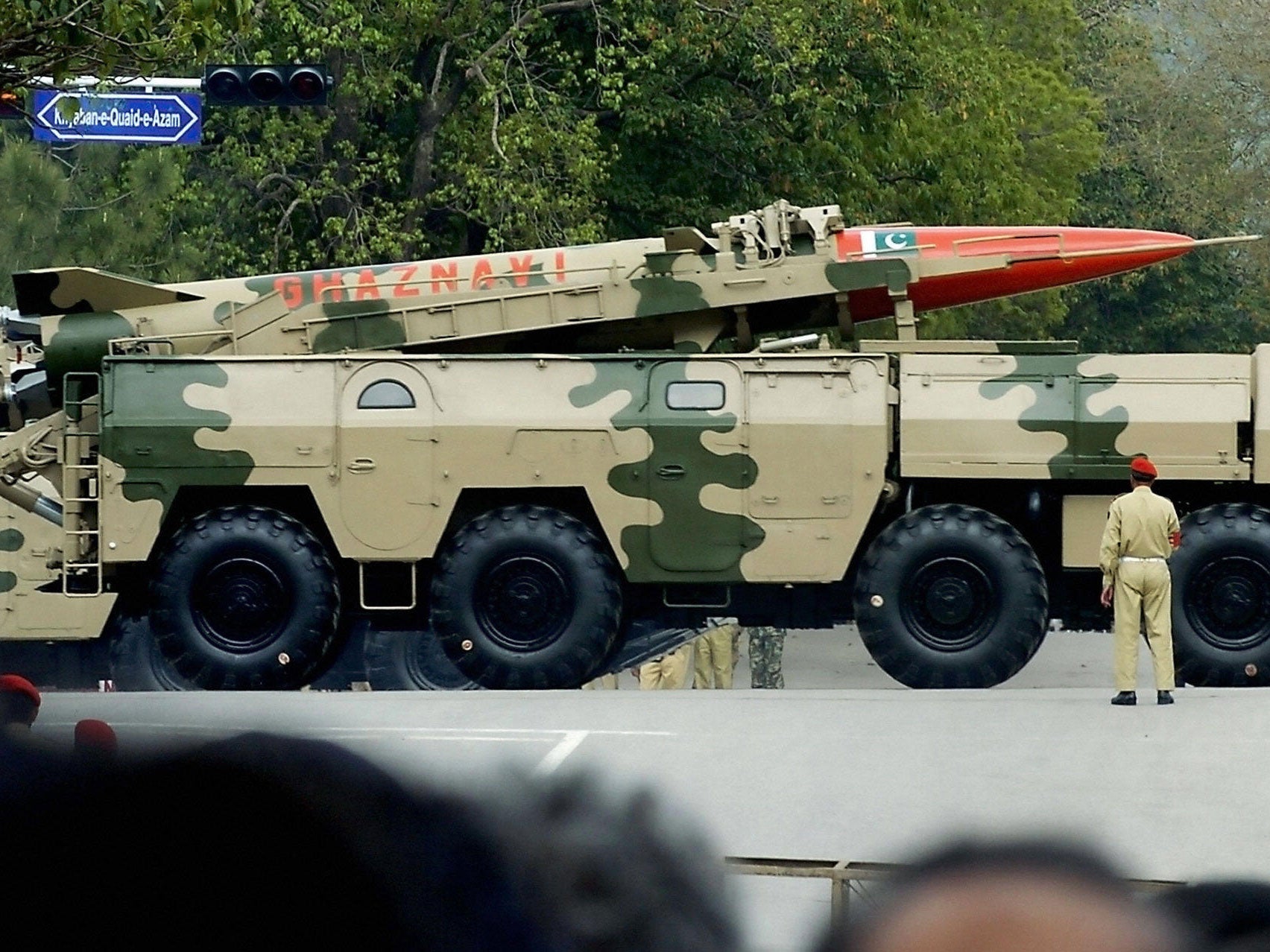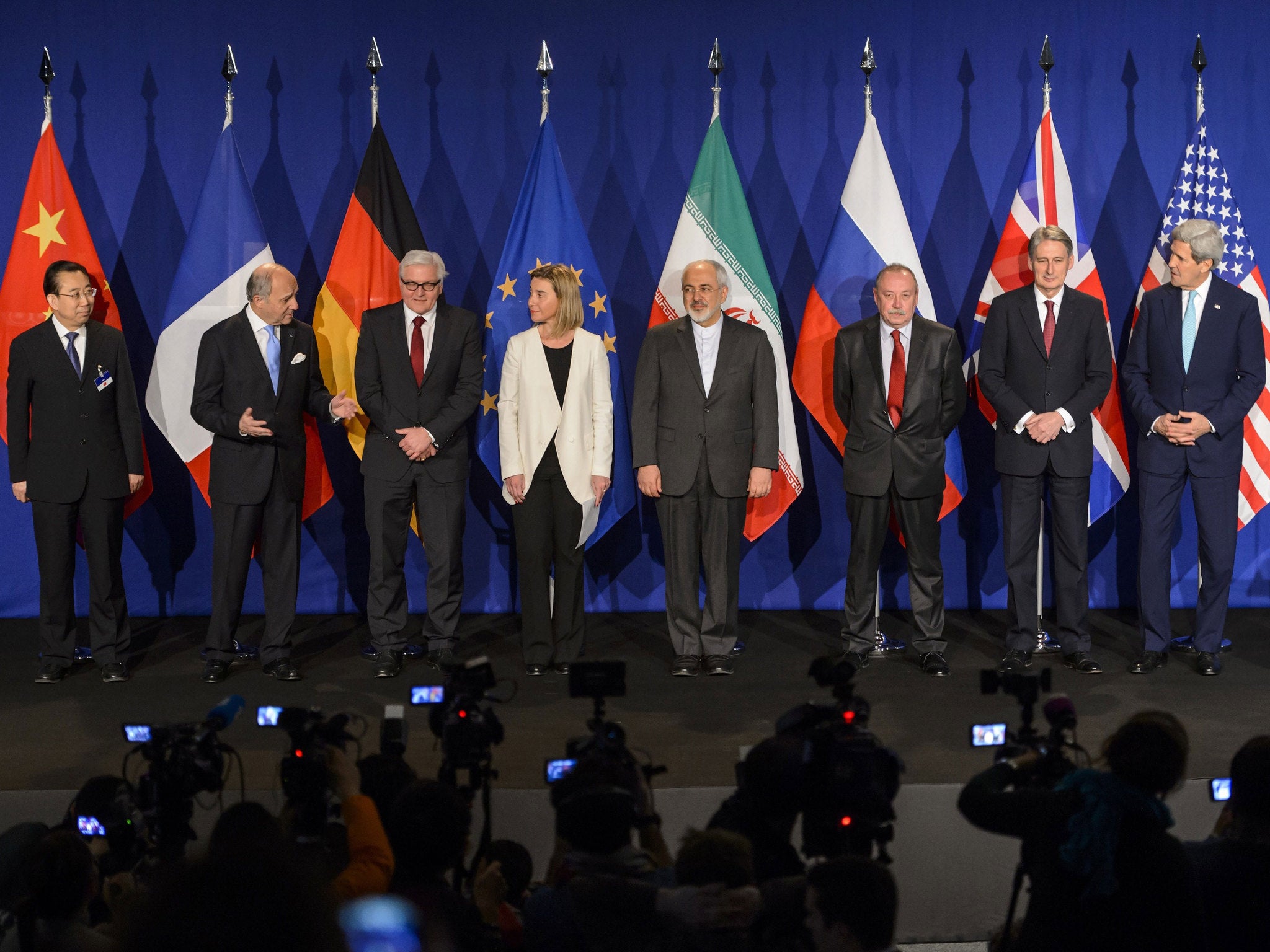Saudi Arabia 'could go nuclear' unless Iran talks lead to 'watertight' agreement warns ambassador
Prince Mohammed bin Nawwaf praises diplomatic efforts but says his country needs guarantees on Tehran's nuclear ambitions

Your support helps us to tell the story
From reproductive rights to climate change to Big Tech, The Independent is on the ground when the story is developing. Whether it's investigating the financials of Elon Musk's pro-Trump PAC or producing our latest documentary, 'The A Word', which shines a light on the American women fighting for reproductive rights, we know how important it is to parse out the facts from the messaging.
At such a critical moment in US history, we need reporters on the ground. Your donation allows us to keep sending journalists to speak to both sides of the story.
The Independent is trusted by Americans across the entire political spectrum. And unlike many other quality news outlets, we choose not to lock Americans out of our reporting and analysis with paywalls. We believe quality journalism should be available to everyone, paid for by those who can afford it.
Your support makes all the difference.Saudi Arabia could attempt to obtain a nuclear weapon unless negotiations with Iran produce a "watertight" agreement over Tehran's nuclear ambitions, the Saudi ambassador to the UK has warned.
Prince Mohammed bin Nawwaf bin Abdulaziz al-Saud said he hoped negotiations with Iran would lead to a "guarantee Iran will not pursue this kind of weapon", but that "if this does not happen, then all options will be on the table for Saudi Arabia".
The ambassador's warning came in an interview with The Daily Telegraph published on Monday.
It comes as Tehran and the so-called P5+1 - made up of the US, the UK, France, China, Russia and Germany - are attempting to reach a final agreement on Iran's nuclear programme ahead of a 30 June deadline.
Prince Mohammed said that Saudi Arabia commended the current diplomatic efforts, but reiterated a Saudi warning that if left unchecked Iran's activities will spark nuclear proliferation across the region.
Last month unnamed US officials were quoted as saying Saudi Arabia had already put in motion a plan to buy an "off the shelf" nuclear weapon from Pakistan. Saudi Arabia is believed to have helped fund its ally's nuclear programme, which began back in the 1970s.
Separately in Vienna, the head of the UN's nuclear watchdog said the agency would be better able to provide "credible assurances" on any possible military dimension of Iran's nuclear programme if a preliminary deal agreed with Iran is implemented.
As part of the initial deal reached in April in Switzerland, Iran was to implement a so-called Additional Protocol that would give the International Atomic Energy Agency (IAEA) more intrusive access to facilities in Iran.

"Implementation by Iran of the Additional Protocol will ... significantly increase the Agency's ability to provide credible assurance about the absence of undeclared nuclear material and activities in [Iran]," Yukiya Amano, the IAEA chief, said on Monday, according to the text of his speech.
The IAEA investigation into Iran's past nuclear activity is technically separate from the nuclear talks.
The comments mark the first time Amano has expressly linked the two.
(Additional reporting by agencies)
Subscribe to Independent Premium to bookmark this article
Want to bookmark your favourite articles and stories to read or reference later? Start your Independent Premium subscription today.
Join our commenting forum
Join thought-provoking conversations, follow other Independent readers and see their replies
Comments